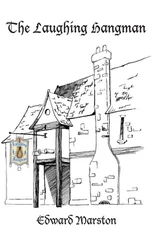The man went out onto the porch, the plate of fruit in one hand, a small table in the other. He set the table down beside the woman and put the plate on it.
“Would you rather drink, Swan?”
“I’d like to get drunk.”
“O.K. We’ll look at the fruit, then.”
He went back to the kitchen, opened a bottle, filled a silver bucket with ice from the refrigerator, got tall glasses, shaved peeling from a lemon, and filled a glass pitcher with cold water. He poured drinks on the porch, and they began to drink. He lighted a cigarette, and Swan reached for it. He gave it to her and lighted another. They drank and smoked in silence. The man sat on the railing of the porch, not directly in front of his wife but to one side. In the silence they listened to one another, actually heard one another breathing, and then at last the woman said his name very softly. It was not whispered, it was spoken, but so softly that it might have been Eva Nazarenus herself speaking a year ago, the softest speech either of them had ever heard.
“Yes, Swan?”
“I’m scared.”
“Why?”
“I’m scared to death.”
“Don’t be.”
“I don’t want to be, but I am. I know the kind of man you are, the kind your brother is, the kind your father must have been, the kind Red is.”
The man got down from the railing, freshened his drink, then hers, for he knew she had something else to say. He was beginning to tighten up inside about the difficulty she was having saying it. He handed her the freshened drink and looked into her eyes. Then he put his drink down, and hers, picked her up out of the chair and embraced her, not kissing her mouth, only holding her. He came near to rage when he heard her sob. He let her go, picked up his drink, and went down the steps to the walk.
“What is it, Swan?”
“Jesus, Evan.”
“What is it?”
“I wish I were dead.”
“Why, Swan?”
“Let me drink a little,” the woman said. “Please let me drink a little first.”
He leaped up onto the porch to the table and the bottle. He took the bottle and poured out of it over the ice in his glass until it was full, and drank the glass dry.
“Drink a little, Swan,” he said.
He poured into her half-empty glass and she drank as he had.
“I know the kind you are,” she said.
“What kind, Swan?”
He almost knew now what she couldn’t tell him. He dropped cubes of ice into his glass, poured whiskey again, drank again, and refused to believe.
“Listen,” he said. “Maybe you’d better not tell me.”
“No,” the woman said. “I’ve got to tell you.”
She finished her drink and stared at him.
“The boy said you loved everybody in Clovis,” the man said. “He said you were beautiful in Clovis. He said you were funny because you loved everybody.”
“Yes,” the woman said.
“What is it, Swan?”
“Can I have one more drink? Please.”
“No!” he shouted. “What is it? Make it fast. Get it over with. Don’t fool around with it. Let’s have it.”
“I’m pregnant,” the woman said quickly. “It’s not ours.”
The man picked up the bottle by the neck. The woman cringed, thinking he meant to strike her. He poured his glass a quarter full, added water, and handed it to the woman. He took her glass and poured it almost full, and began to drink.
He sat up on the railing again, holding the glass, and began to cry softly. The woman got up out of the chair, and went to him.
He leaped from the railing to the walk, threw the glass far out into the vineyard, and hurried away. When he reached the road, he stopped and turned and saw the woman following him. He began to run down the same road along which only an hour ago the four of them had loafed. When he had gone about fifty yards he stopped again, turned, and saw that she was lying at the foot of the steps.
A car was coming toward him now, moving swiftly. It slowed down, then almost stopped. He saw that it was Warren Walz and his wife May, but he turned away. The car drove on slowly. It stopped at the turn, and he saw Walz get out and walk quickly toward the woman.
He ran across the road into the vineyard.
Red heard his father shout, but he’d heard that before, many times. At first hearing his father shout had scared him and made him vaguely angry. Once it had filled him with sudden hatred. He’d flung himself at his father, who had only picked him up.
“You don’t understand,” he’d said.
He’d put Red down, and Red had felt ashamed, for he had instantly understood. Still, he wished Evan wouldn’t be so angry at her. When Swan was angry at Evan it was bad enough, but there was something amusing about it, and while it annoyed Red to think Evan was being made angry, Swan’s anger never seemed in earnest. She always seemed to mean something else by it.
He sat up suddenly, then got out of bed, in the dark, and stood a moment at the door. He felt strangely sick, and began to shiver. At last he went out into the dark hall, then into the parlor.
Warren Walz saw the boy trying to lift up his mother, holding a hand, dropping it, and then trying to lift her by the head.
“I’m Warren Walz,” he said to the boy. “We met at the depot.”
“What’s the matter with my mother?”
“Here,” Warren said. “Let me lift her up.”
May Walz came quickly, the husband and wife got the woman to her feet and moved her slowly up the steps. She saw Red holding the door open, wrenched herself free, went to him, took him up in her arms, and went into the house. She slammed the door shut and moved with the boy through the dark house. She struck a table somewhere, lost her balance, and fell.
Red got out of her embrace and helped her to her feet.
“Mama?” he said. “Turn on a light.”
“No,” she whispered. “No. I don’t want a light.”
Outside, the husband and wife looked at one another.
“That was him on the road, wasn’t it?” the wife said.
“Of course.”
“Hadn’t you better go after him?”
“I don’t know. After all, it’s none of our business.”
“You better go after him,” the wife said. “We just can’t get back into the car and go home. I’ll stay here on the porch until she feels like coming out again, or until you come back.”
“Let me take you home,” the man said. “I don’t think we’d better stick our necks out.”
“Something’s the matter,” the woman said. “Why doesn’t she turn a light on?”
“Let me take you home.”
“Go after him. I’ll stay here.”
“Hell fire,” the man said, “they’ve had a little fight. They’re both ashamed and want to be left alone.”
“Go after him, Warren.”
“Oh, Christ,” the husband said.
“His brother’s your friend,” the woman said.
“His brother’s nobody’s friend,” the man said. “This is none of our business.”
“Will you please shut up and go after him?” the woman said.
“Ah, the hell with you , too,” the man said, and went to the car. He turned it around and drove back along the road. The woman watched him go; then, deeply frightened, tiptoed up the steps of the porch to the door. There was nothing to be heard from inside the house.
The boy was back in bed, wide awake in the dark.
“Don’t cry,” he said.
“He’s your father,” the woman sobbed. “He loves you. He loves Eva.”
“Does he love you , Mama?”
“Yes, he loves me, too.”
“Then why are you crying?”
“I can’t tell you, Red. I can’t tell you, but I love you.”
Now, she sobbed more terribly than ever. What was the matter? What was it, always? Why couldn’t anything be the way it ought to be? Why was everything always strange, mysterious, dangerous, delicate, likely to break to pieces suddenly?
Читать дальше












